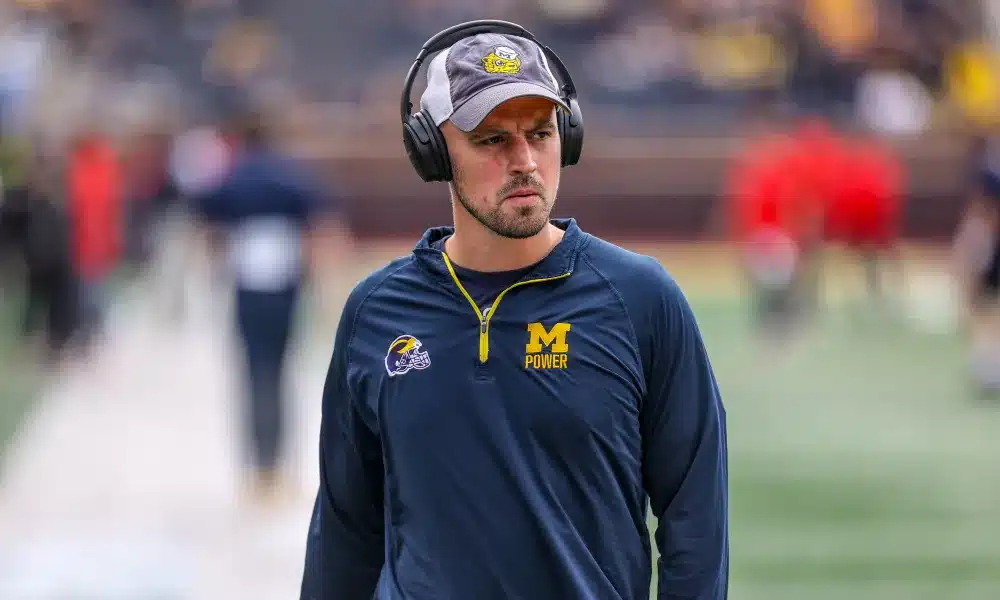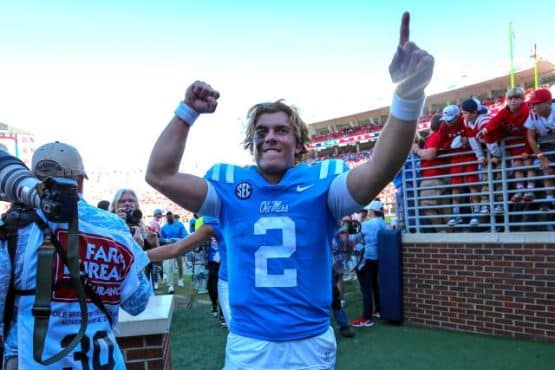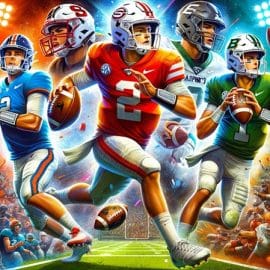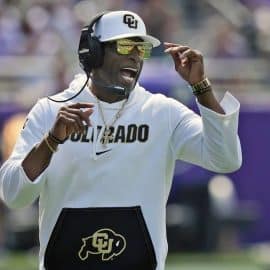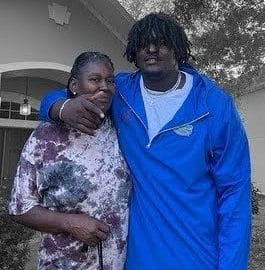At the heart of the college football sign-stealing scandal, a Michigan Wolverines’ staffer, Connor Stalions, finds himself in hot water. At the center of the allegations is Stalions’ Venmo account, which was allegedly used to send a Michigan intern to the Peach Bowl to steal signs from the Georgia vs. Ohio State game.
Michigan Staffer Connor Stalions’ Sketchy Venmo Transaction
Internet sleuths have seemingly traced a Venmo transaction from Michigan college football staffer, Connor Stalions to Michigan recruiting intern Chase Evans. The transaction with reference ‘GA’ came just a day before Ohio State played Georgia in the Peach Bowl.
Michigan staffer Connor Stalions made a public Venmo transaction to Michigan Recruiting Intern Chase Evans with the description “GA”, the day before last year’s Peach Bowl. 🕵️ https://t.co/pHpzvLjbQy
— RedditCFB (@RedditCFB) October 24, 2023
This has led many to speculate that Evans was sent to the game with the goal of stealing signs from the teams, who Michigan could have then faced in the College Football Playoff Championship Game.
Stalions Bought Tickets to 30 Big Ten Games Using Own Name
But this is just the start of the issues for Stalions. Stalions reportedly bought tickets using his real name for over 30 games across 11 Big Ten schools in the last three years. These purchases were allegedly for scouting opponents and stealing play-call signals, a big no-no in the eyes of the NCAA.
This wasn’t just a one-time thing but a well-orchestrated endeavor spanning several seasons, indicating a level of premeditation that’s hard to overlook.
Michigan Suspends Stalions, Harbaugh Denies Any Knowledge of New Spygate
After these allegations surfaced, Michigan acted fast, suspending Stalions with pay. Meanwhile, head coach Jim Harbaugh denied any knowledge of this sign-stealing scheme. But the story has cast a shadow over Michigan’s impressive season start, raising questions about the integrity of the game and the ethics of those involved.
As the investigation unfolds, the stakes are high not only for Stalions and the Michigan Wolverines but for the whole of college football. The outcome could set a precedent on how such digital footprints are monitored and evaluated in the future, ensuring the essence of fair play remains intact in the fiercely competitive world of college football.
Add The Sports Daily to your Google News Feed!
